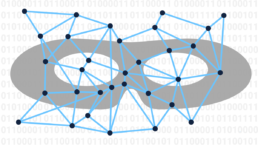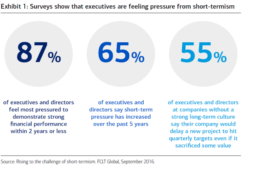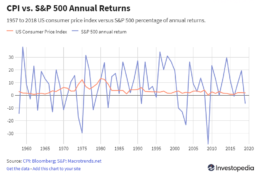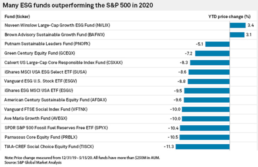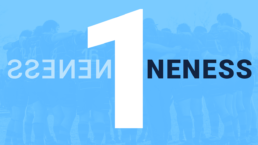A Sports Fan’s Thoughts on Impact Investing

In honor of National Sports Day, August 29th, I’d like to share my full-circle story as both a lifelong sports fan and an impact investing advocate. First, a little background.
I was raised in Lincoln, Nebraska, where a unique religion is celebrated every Saturday during the fall. The service is held in Memorial Stadium, required dress code is red, and the faithful worship…football. My parents tithed, as season ticket holders. I even had the honor of tumbling on the altar, er, field.
I was a competitive athlete in high school, as was my husband. We raised two kids, who are currently both Division-I student-athletes. My previous career was in college sports.
Sports is in my blood.
With the global pandemic of COVID-19, the past six months have been catastrophic on so many levels. We have lost lives, jobs, homes, and dreams. Difficult times require us to reflect on what’s truly important, seek perspective, and lean on what provides solace.
But my happy place essentially vanished with the virus.
Without sports to feed my soul, I focused on my other passion – impact investing – and I quickly realized powerful synergies. They both bring people together. They connect people through the desire for a common goal and collective purpose. They further the dialogue on social justice and racial equality. They inherently build diverse communities who work together as a team. They are value-focused — what means the most to us.
Imagine if we directed the same amount of time, energy, and thought into our spending habits as we do into the playoffs, the championship game, or the MVP. Our purchasing and investing power are larger than any title or trophy. We have the ability to bring positive change into the world simply with our wallets. And everyone can join the team, impact investing is now accessible and inclusive.
As a closing thought, the power of sport in facilitating positive social and environmental change is undeniable. The recent boycotts of the WNBA and NBA players are just one example. We need to listen, learn, converse, and act together, utilizing the platforms we have available every day.
Support your team. Invest in your values. Make the world a better place.
Meg Masten is the Chief Relationship Officer at CoPeace. As a forward-thinking holding company, CoPeace is building a portfolio of carefully selected for-profit companies with measurable social and environmental impact. To learn more about impact investing, check out CoPeace’s Intro to Impact Investing.
Why Does My Digital Privacy Matter?

Share
Why Does My Digital Privacy Matter?
By Jim Crawford
With a name like Jim, it’s easy to end up with dozens of nicknames over the years. One of the quirkiest nicknames I’ve earned is “Tinfoil Hat Jim.” The name implying my propensity for sharing (too passionately, sometimes) about the underrepresented problems of the world. Many may be addressed in future blogs. However, one in particular, is incredibly important to me – your digital data and privacy.
WAIT DON’T LEAVE!
Yes, data and privacy. Please stick with me, as I try to make a case for why this matters. In honor of my family and friends, I wanted to list some of the most common responses I hear when a discussion about digital privacy comes up:
1. “I don’t care if they see what I’m doing. I don’t have anything to hide.”
Ahh, this one. You essentially denounce yourself as so meaningless, who would even bother? It works in theory, but unfortunately your data is what makes everyone else’s data so valuable – and vice versa. In the business of selling info, large sets of user data are required to glean habits and trends of different demographics.
This information is only valuable in large sets to build patterns with machine learning and algorithms. The data gatherers are hoping you and 5 million other people won’t care enough to secure your data – that’s the most valuable result for them. In the words of Plato, “To be silent, is to consent.”
TL;DR: It’s precisely because enough people just don’t care, that everyone else’s data is so valuable and it becomes easier to discern your personal preferences and opinions.
2. “Oh well, they already have all my info anyway.”
It’s true that consumer data protection has largely been ignored and violated for decades now. And it’s true some of your old info is probably in the hands of parties that should not have it. While a lot of your past history may be out there for someone to use or sell, why would that be a reason to continue providing those parties with more current and personal data about you? Think about your oldest email addresses, credit cards, and passwords. The data most likely to be compromised is probably already irrelevant to you, expired, or unused. But it’s not a logical reason to continue leaving yourself vulnerable to privacy violations.
TL;DR: If your sink was leaky, would you neglect to fix it because some of the water already leaked out?
3. “Well, I’m broke anyway, so the joke is on them.”
While Aunt Margery probably got the whole family paranoid after watching a broadcast special about “the foreigners” stealing your credit card info, let’s not go make a Facebook post about it…yet. Your primary concern is not really that someone will steal your money. This is where some of the strongest data security regulations already exist, thankfully. The concern is that data collectors will be able to build a profile on you and influence your habits and belief systems.
TL;DR: The big players aren’t after your money, directly. They are after your habits, patterns, and beliefs.
In general, I think the greatest mistake we make as a population is assuming our surface data is all that’s being collected. In reality, governments and corporations are tracking thousands of data points on each one of us – financial, political, commercial, social. How long we hover on text and images, which devices we are connecting with, where we are connecting from, what themes develop from our search history.
Want to take the first step in protecting your personal data? See some of my simplest recommendations below.
1. Make Mozilla Firefox or Apple Safari your default web browser.
Website cookies and trackers normally follow you around the web, track your actions, and report the data back to an organization. Firefox and Safari are making the most progressive attempts to prevent this by having each tab represent its own internet session. This way trackers cannot exit their own tab to track your other web activity.
2. Change your default search engine to DuckDuckGo.
Yes, DuckDuckGo. It sounds funny, but it is the antithesis to Google. Many search engines are the biggest offenders of privacy. Google began tracking and storing user data under the guise of providing more relevant ads. This has quickly devolved into complex personality profiles built “anonymously” and sold to the highest bidders, who want specific demographics to receive their message. The DuckDuckGo search engine does not operate on this revenue stream and doesn’t collect personalized data to profile and store.
It’s important to recognize that the more someone knows about you, the easier it is to understand you, including your wants, needs, and beliefs. At its least sinister, this means targeted advertising and location tracking – getting you to direct your money toward them. However, utilized in more sinister ways, this data can be used for voter suppression, political manipulation, social unrest, and even global disruption.
Jim Crawford formerly worked with CoPeace in business communications. As a forward-thinking holding company, CoPeace is building a portfolio of carefully selected for-profit companies with measurable social and environmental impact. To learn more about impact investing, check out CoPeace’s Intro to Impact Investing.
Stewards of Our Planet
July 11th is World Population Day. I know what you are thinking…everything has a day…National Siblings Day…National Ice Cream Day… but this is a day that really matters.
The world population has been increasing at around 100 million people a year – to where we now stand at approximately 7.8 billion people.
That is a lot of need for clean water, food, shelter; and our planet is being developed and pushed to unprecedented limits.
What can we do?
We must be mindful stewards. It will take a collective effort.
It is so important for us to take the necessary steps now to preserve the planet’s vital resources!
We are starting to see that renewable energy is our future and even the traditional oil and gas companies are now investing in clean energy. This is the first step in turning the corner.
This shared planet must be one of equality.
What measures are being put in place to ensure economic equality and social justice?
Finally, we are making demands for true equality and answering the call that Black Lives Matter!
The current pandemic has further accentuated issues within the global economy of the wealth divide. We have seen the most vulnerable be the most affected by the pandemic.
COVID-19 has revealed issues with our current infrastructure.
The past three months have been riddled with power outages and internet interruptions to complement an aging physical infrastructure of roads, pipes, and buildings. Cities such as Flint, Michigan are still without clean water.
Innovative solutions are being implemented, but more is needed.
At CoPeace, we are committed to being part of the solution. We are investing in companies that share this responsibility to the planet and its people that are creating a better world for the next two thousand years.
Your investment in CoPeace helps us to inspire and create positive change in all these areas.
Look around you, give a wave, smile at a distance, open up your heart for those you encounter – we are but one people – all 7.8 billion of us. It is our shared world – for today, tomorrow and all the tomorrows thereafter. Collectively we could make a difference and preserve the future.
Happy World Population Day!
Leigh Klein formerly worked as the Director of Sport Strategy at CoPeace. As a forward-thinking holding company, CoPeace is building a portfolio of carefully selected for-profit companies with measurable social and environmental impact. To learn more about impact investing, check out CoPeace’s Intro to Impact Investing.
Thoughts About Long-term Impact Investing

Why Invest Long Term?
- Public markets can disproportionately reward short-term earnings rather than long term growth.
- CEOs of publicly traded companies are under enormous pressure to deliver consistent quarterly earnings growth or suffer the consequences of declining share prices and or short-lived tenures in the C-Suite.
- Patience can lead to profits
- Great ideas need time to incubate, nourish, refine, and grow into comprehensive transformational solutions to current and future challenges.
- Trends take time to develop and sustain
- If you choose wisely with your head, your heart, and some solid math you can relax and enjoy upward rise and filter out the inevitable ups and downs along the way.
- Why endure the stress of daily market fluctuations when you can invest for the long haul?
- Investing in publicly traded companies can be a rollercoaster subject to the wild swings up and down as we have been experiencing over the last few months.
- Buying and holding public equities is a strategy with long term positive returns, but you have to be willing to endure market fluctuations. The long-term average annual return in the S&P 500 adjusted for inflation is about 7% (according to Investopedia). So, a diversified stock portfolio has traditionally been a solid investment choice over time.
-
- If you don’t need short-term access to a portion of your investable funds, you can buy and hold publicly traded stocks and block out periodic volatility
OR…
- Invest for the long term in private companies
- Traditionally, private company investing has been largely available only to high net worth individuals, institutions, venture capital and private equity firms.
- Such investments are highly illiquid and generally have finite holding periods of 4-7 years to realize a return upon exit (sale of the company, merger, IPO, etc.)
- Pre-IPO companies are often loaded up with debt and driven toward rapid growth at all costs to facilitate the mid-term exit
AND…
Consider Investing a portion of your portfolio in privately held companies with environmental and social Impact
Why Impact Investing?
- It’s is a smart investment decision. Even now, now impact drive (ESG) funds are outperforming other companies during the Covid-19 pandemic
Merrill Lynch’s Case for Sustainable Investing
- Inflows into sustainable strategies over the next few decades could be roughly equivalent to the size of the S&P 500 today.1
- Firms with good or improving environmental, social, or governance (ESG) characteristics have been shown to perform as well as—and may even outperform—their peers.2
- Companies that are ranked higher by ESG data providers have generally seen lower future earnings volatility.3
- Nearly two dozen emerging markets offer approximately $23 trillion in climate-related investment opportunities.4
- Companies with good or improving social characteristics have, on average, outperformed companies with negative characteristics.5
- While performance results have varied over time, companies with better scores on board diversity and management diversity saw consistently higher future return on equities than counterparts with lower scores.6
In Summary
- It’s good for society—investing in companies with positive environmental and social impact helps our planet by addressing and solving important problems.
- It’s good for your personal health—remove the anxiety of market volatility and take solace in the fact that your investments are in alignment with your personal values.
- It’s the right thing to do—make the world a better place for our kids and for future generations
- It’s good for your portfolio health too—build your net worth while you #growyourmoneyforgood
Ed Tepper is the Chief Operating Officer and Chief Finance Officer at CoPeace. As a forward-thinking holding company, CoPeace is building a portfolio of carefully selected for-profit companies with measurable social and environmental impact. To learn more about impact investing, check out CoPeace’s Intro to Impact Investing.
Never Thought You Could Afford To Invest? Read This.
If ringing bells, people running around in suits, and flashing neon signs — the mayhem of the giant electronic marketplace of Wall Street and the New York Stock Exchange — are the first things that come to mind when you think of investing, you’re not alone. The stock market represents the most-well known portrayal of buying and selling of shares of stock and ownership interest in companies throughout the world. However, the thought of that can be quite intimidating.
When you picture Wall Street — investing feels pretty out-of-reach for most ordinary people. And that’s not okay. Everyone should have the opportunity to support the causes they care about and earn competitive financial returns.
A Different Perspective: Impact Investing
Impact investing started in the mid-2000s but has become increasingly popular in recent years due to the heightened awareness of people who want to make a positive impact on the world (and earn money, too). At CoPeace, we’re committed to this concept and to disprove the idea that building wealth and planning for retirement is only available to the wealthy. Why? Because we know that by widening the gap between the “rich” and the “not rich” is the last thing we need to further divide the people in our country.
We believe everyone should have the opportunity to build wealth.
That’s why we’ve decided to democratize investing. No matter what income bracket you fall into, or your race, gender, or socioeconomic background, we want to help you grow your money for good. And the time to start — is now.
Get in on the Action & Invest in CoPeace
Last weekend, we launched our crowdfunding campaign. It’s the first opportunity for people (just like you!) to buy shares, earn dividends, and join our community of passionate investors that care about making a positive social and environmental impact on the world. Our goal is to raise $1M in this campaign — we’ll use the money to help growing companies make a positive, measurable impact. Every dollar counts, and we’d like to invite you to join us by purchasing company shares and earning voting rights and the potential for annual dividends.
Options for Everyone
You can buy as many shares & make as big an impact as you’d like — however, please note that the minimum investment option is to buy 3 shares for $360.
We’re using the WeFunder platform to connect with new investors and track our progress toward our goal. It’s easy to use and understand, and if you have any questions about this opportunity, know that we’ve tried to answer any that you may have on our site. Read more about how you can channel your funds where our future is, and how your money can make a positive impact on companies doing great work here: https://wefunder.com/copeace.
Are you ready to join us? Click this link to invest now: https://wefunder.com/copeace.
Lindsay Hope is a copywriter and marketing strategist with CoPeace. As a forward-thinking holding company, CoPeace is building a portfolio of carefully selected for-profit companies with measurable social and environmental impact. To learn more about impact investing, check out CoPeace’s Intro to Impact Investing.
The Status Quo Must Change

Each member of the CoPeace team writes several blogs throughout the year, rotating through our diverse and unique voices to provide fresh perspectives. This was my week to write. I usually pepper my blogs with wit and humor (which perhaps is only funny to me), but I’m struggling to find any humor this week. I’m going to just keep this short and to the point.
At CoPeace, we are fighting to change the financial system that has, for so long, oppressed so many. We are fighting to democratize the impact investing world, by investing in companies that change the way we do things…for the better. We are investing in diverse leaders with innovative points of view, and we are providing access for wealth creation to populations that have been systematically kept from it.
Internally, we often discuss how hard we must fight this system, which attempts to force companies to the status quo. But let’s be honest: the status quo is that a man was robbed of his life for no other reason than the color of his skin, and that is wrong. We will not accept that and refuse to support such a system; the status quo must change.
Hanan Levin is a Senior Investment Advisor at CoPeace. As a forward-thinking holding company, CoPeace is building a portfolio of carefully selected for-profit companies with measurable social and environmental impact. To learn more about impact investing, check out CoPeace’s Intro to Impact Investing.
We’re Grateful, and Here’s Why

Monday was Memorial Day, 2020. It’s a day to honor the men and women who have died while serving in the United States Armed Forces. It’s a day to reflect on sacrifices made, freedoms gained, and lives lost. It’s also an opportunity for us to show gratitude toward our current service members and first responders.
As we approach our fifth month immersed in a global pandemic, COVID-19, this Memorial Day seemed to resonate even louder, with an ominous correlation to a “war” we’re currently fighting. To date, we’ve lost nearly 100,000 lives to this enemy in the U.S. alone, including many frontline and essential workers. We’ve gone from a world we thought we knew, to the unknown yet to be revealed. We will never “go back to normal.” This is an unnerving thought, which can provoke anxiety, fear, even anger. But what about gratitude?
At CoPeace, we have chosen to be grateful for today. We are grateful for the veterans who sacrificed their lives on our behalf. We’re incredibly fortunate to live in a country where we can worship, love, and express ourselves freely. We are grateful for the present day, which has afforded us extra time with family, cleaner air, a slower pace, a deeper appreciation for public health, and a real understanding of the interdependency of the worldwide community. And we are grateful for what lies ahead, as the world survives this crisis – a future filled with hugs, community, activism, social entrepreneurship, awareness, thoughtful voting, conscious spending, impact investing, and…gratitude.

Meg Masten is the Chief Relationship Officer at CoPeace. As a forward-thinking holding company, CoPeace is building a portfolio of carefully selected for-profit companies with measurable social and environmental impact. To learn more about impact investing, check out CoPeace’s Intro to Impact Investing.
A Commitment to the Oneness
I’ve been blessed with many great sports experiences in my life. Since I was seven years old, I’ve loved playing and watching sports.
I enjoy many aspects of sports, but what I love the most is the camaraderie. More specifically, it’s the sense of fulfillment that comes from being part of something bigger than myself and sharing the ups and downs with people I like and respect.
To me, there are very few things in the world that can match the experience of being part of a team that’s working toward a common goal. As part of a team, you need to sacrifice a little of your individual desires and wishes for the good of the group. The “Common Good” must take precedence over self-interest.
I once saw this described as “A Commitment to the Oneness.” I like that. A lot.
Anyone who’s been involved with sports in any role, including as a fan, understands how critically important teamwork is to success.
Michael Jordan, the primary subject of the recent ESPN 10-part documentary about the Chicago Bulls, is generally believed to be the greatest basketball player ever. Yet, even he couldn’t win six NBA championships on his own. He had a terrific coach in Phil Jackson and a perennial all-star in Scottie Pippin, who played Robin to Jordan’s Batman. He also had less-talented teammates who came up big in big moments, like John Paxson and Steve Kerr, who each hit game-winning and championship-winning shots during the Bulls’ dynasty.
The COVID-19 pandemic has shown us how connected and interdependent we truly are as a global community. People on every continent are worried about how the virus might impact them, their loved ones, and their way of life.
We are all bound together on this big blue ball we call Earth. In effect, whether or not we always realize it, we’re teammates in the game of life. Our challenge is to make the world we share as healthy, just, sustainable and prosperous as we can.
I am blessed to be part of a new team – one called CoPeace. CoPeace is an innovative impact investing company. Our mission is to make the world a better place by investing in companies that are working to make the planet a more equitable, safer, and healthier place to live.
Impact investing offers a different option from the traditional profit-at-all-costs investment model. The impact investing model is one in which the environment and society are on equal footing with profits.
At CoPeace, we have taken Warren Buffet’s Berkshire-Hathaway holding company model and modified it so that the only companies that become part of CoPeace are impact companies that have been thoroughly screened in order to meet very high standards in the areas of social, environmental, and yes, financial impact.
Investing to us is about more than making a profit. It’s about changing the world. Make no mistake, we are striving hard to make profits, just not at all costs. We value people, the planet, and profit equally.
CoPeace is built on a foundation of the common good and fueled by the human spirit.
One of our goals is to democratize the investing process so people from all walks of life, not just wealthy investors, can invest in making the world a better place.
Stay tuned. If you believe in what we’re doing, we will soon have an innovative investment option for you to consider. Check our website on a regular basis, or sign up for our newsletter to get the latest updates.
We’re proud of what we’re doing and would love for you to join us and become a member of Team CoPeace.
In doing so, you too will be making “A Commitment to the Oneness.”
Ken Reed is a Senior Communications Advisor at CoPeace. As a forward-thinking holding company, CoPeace is building a portfolio of carefully selected for-profit companies with measurable social and environmental impact. To learn more about impact investing, check out CoPeace’s Intro to Impact Investing.
Finding Our Morals – The Green Stimulus

Share
Finding Our Morals – The Green Stimulus
By Jim Crawford
Earlier this week the governments of Britain and Germany announced the re-opening of their economies will place an emphasis on clean energy and building a sustainable economy. As our CFO, Hanan Levin, has alluded to since the pandemic began, the restart of the economy will almost certainly require “going green.”
The coronavirus has halted the global economy in ways many didn’t believe were possible. It has revealed how global and demanding human infrastructure is – how a seemingly simple event can have ripple effects that amplify across industries and systems.
The benefit to this shutdown is the opportunity it provides for us to reflect on those systems – personally, socially, and globally. At CoPeace we don’t want to “get back to normal.” The old normal wasn’t equitable and didn’t properly value the health of people and planet.
Throughout continuing lockdown efforts, we have seen just how quickly the planet flourishes – record low air pollution, wildlife returning to local habitats, and countries permanently shutting down coal plants.
So when will the economic uncertainty end? Probably with something like the American New Deal, which pulled the United States from ongoing economic collapse. Many governments seem to be evaluating a “green stimulus package” that would involve getting people back to work by building sustainable energy and infrastructure.
The benefits to a plan are numerous: jobs for the unemployed and which cannot be automated, sustainable energy, and a revitalized infrastructure capable of handling 21st-century technology.
At CoPeace, we have the same vision and drive to create a new sustainable impact investing economy. We believe capitalism also needs to shift to value people and planet. We hope to provide a system that is democratic and accessible to everyone for long-term investing – where making money is aligned with doing good.
After all, what is profit without people or planet?
Jim Crawford formerly worked with CoPeace in business communications. As a forward-thinking holding company, CoPeace is building a portfolio of carefully selected for-profit companies with measurable social and environmental impact. To learn more about impact investing, check out CoPeace’s Intro to Impact Investing.
There’s Nothing Wrong With Profit. The Problem is Profit-At-All-Costs.
Business, at its best, can be a powerful force for good. It can lead to shared prosperity and well-being. The problem – and it’s a big one – is that American capitalism is seldom business at its best.
Too many American businesses – today and historically – have operated driven by a profit-at-all-costs (PAAC) mentality that too often ignores, or significantly downplays, the negative impact business decisions can have on social and environmental matters.
A great observer of American culture, Alexis de Tocqueville, nailed the PAAC mentality nearly two hundred years ago when he wrote:
“As one digs deeper into the national character of the Americans, one sees that they have sought the value of everything in this world only in the answer to this single question: how much money will it bring in?”
For me, business at its best is progressive capitalism. That entails business that prioritizes people, planet, and profit, equally. The social returns of a business activity need to be fully considered along with the private returns to individuals or companies.
The principle of the “Common Good” must be valued as much as individualism.
Let me step back and clarify a bit here. Throughout our country’s history, there have been plenty of companies that have properly balanced the needs and objectives of stockholders, customers, employees, and communities. The problem is, they have been, and continue to be, in the minority.
Wall Street firms, along with too many individual investors, have been part of the problem too, with their short-term thinking and seemingly unceasing focus on quarterly earnings reports.
But there is good news to share. The number of “Triple Bottom Line” (people, planet, profit) companies is increasing, as is the number of impact investors.
Impact investing, a progressive approach to investing, emerged a little over a decade ago and in recent years its growth has been exponential. In fact, the impact-investing sector has doubled in size the last two years, according to Global Impact Investing Network’s “2019 Report on Sizing the Impact Investing Market.” According to the same report, impact investors say their impact investing allocations will continue to grow.
Impact investing is a pushback against profit-at-all-costs business and investing practices, which focus almost exclusively on financial performance, while ignoring the social and environmental problems such practices can create. Impact investing is a sister to progressive capitalism, in which businesses are designed to add value to society in multiple ways, and work for the benefit of all stakeholders – customers, employees, shareholders and communities.
Both impact investing and progressive capitalism are grounded in terms like sustainability, fairness, equality, transparency, environmental impact, and social impact. It’s a purpose and profit approach to both conducting business and investing.
What’s really exciting is that impact investing has the potential to positively address a wide range of global issues: the climate crisis, accessible water and power, affordable housing, equitable labor practices, sustainable farming, clean energy, and many more.
Impact investing’s explosive growth the last five years has been driven to a large degree by Millennials (those born between 1980-’94) and the Gen Z generation (those born between 1995-’15), who want their investments to do more than just make money.
That said, it is not just young investors that have spiked impact investing’s growth. The number of impact investors is rising across all demographic categories. These investors have also been described as personal values investors; in that they want their investments to align with their personal values. In doing so, their intent is to make their investment portfolios a statement of who they are and what they stand for.
Historically, there has been a common misconception that profits and positive impact on society are mutually exclusive. To a large degree, this is because the current capitalism structure – including the investment sector — prioritizes profits over people and planet. But as Warren Buffet has said, “Good profits simply are not inconsistent with good behavior.”
Impact investing is not only changing the traditional investing world, but also helping to transition capitalism from a profit-at-all-costs mindset to a people-planet-and-profit mindset, in which an equal emphasis is placed on social, environmental, and financial performance.
To that end, we at CoPeace are trying to do our part. CoPeace is a Public Benefit Corporation (PBC) and Certified B Corporation. Our name is short for “Companies of Peace.” The rationale for the name is tied to the company’s deep desire to help create a new form of capitalism – one that is progressive, inclusive, and committed to success with multiple bottom lines, leading to a better, more peaceful, world.
It sounds idealistic, and it is, but that vision is what drives us.
We hope you will join us.
Ken Reed is a Senior Communications Advisor at CoPeace. As a forward-thinking holding company, CoPeace is building a portfolio of carefully selected for-profit companies with measurable social and environmental impact. To learn more about impact investing, check out CoPeace’s Intro to Impact Investing.
March 31, 2020

